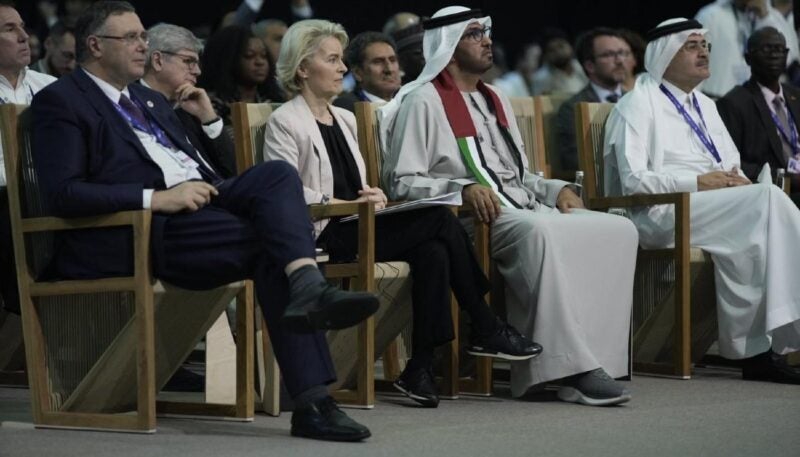
At the ongoing 2023 United Nations Climate Change Conference (COP28) in Dubai, UAE, more than 100 countries have committed to triple the global installed renewable energy generation capacity to at least 11,000GW (11TW) by 2030.
By signing the Global Renewables and Energy Efficiency Pledge, the countries also agreed to increase the global average annual rate of energy efficiency improvements by two folds from nearly 2% to more than 4% ever year until the end of this decade.
The pledge was launched by European Commission (EC) President Ursula von der Leyen along with the COP28 President Sultan Al Jaber from the UAE, and 118 countries.
It was developed in close cooperation by the EC and the COP28 Presidency, with the backing of the International Energy Agency (IEA) and the International Renewable Energy Agency (IRENA).
By increasing the present renewable energy capacity of nearly 3,400GW by three folds, it is expected that CO2-emitting fossil fuels will be removed from the global energy system by no later than 2050, as per the pledge.
Other countries endorsing the pledge include Brazil, Australia, Nigeria, Japan, Canada, Barbados, and Chile, reported Reuters.
China and India have expressed support for tripling renewable energy by 2030. However, they have not fully endorsed the overarching commitment, which combines the expansion of clean power with a simultaneous reduction in fossil fuel utilisation.
EC President von der Leyen said: “With this Global Pledge, we have built a broad and strong coalition of countries committed to the clean energy transition – big and small, north and south, heavy emitters, developing nations, and small island states.
“We are united by our common belief that to respect the 1.5°C goal in the Paris Agreement, we need to phase out fossil fuels. We do that by fast-tracking the clean energy transition, by tripling renewables and doubling energy efficiency.”
To drive the Global Renewables and Energy Efficiency Pledge, the EC President declared a commitment to invest €2.3bn from the European Union (EU) budget over the next two years.
The financial support is dedicated to fostering the energy transition both within the EU and worldwide. Additionally, the EU will leverage its Global Gateway flagships programme to sustain its backing for the clean energy transition.






